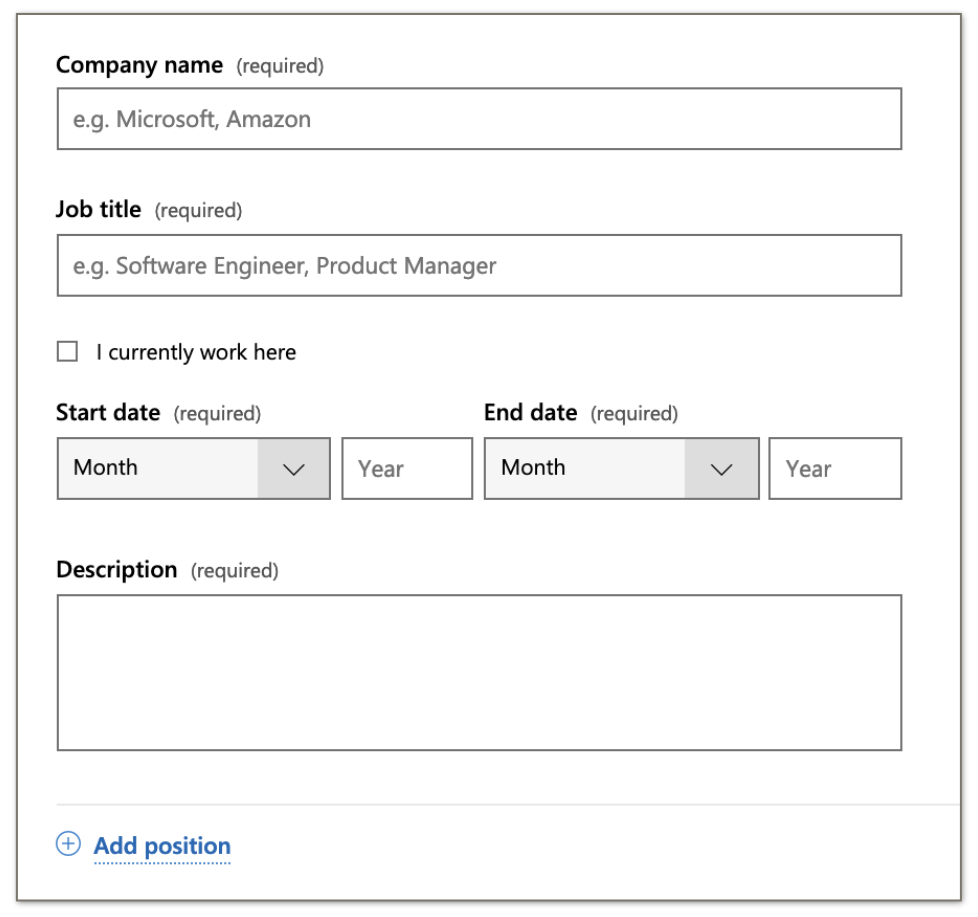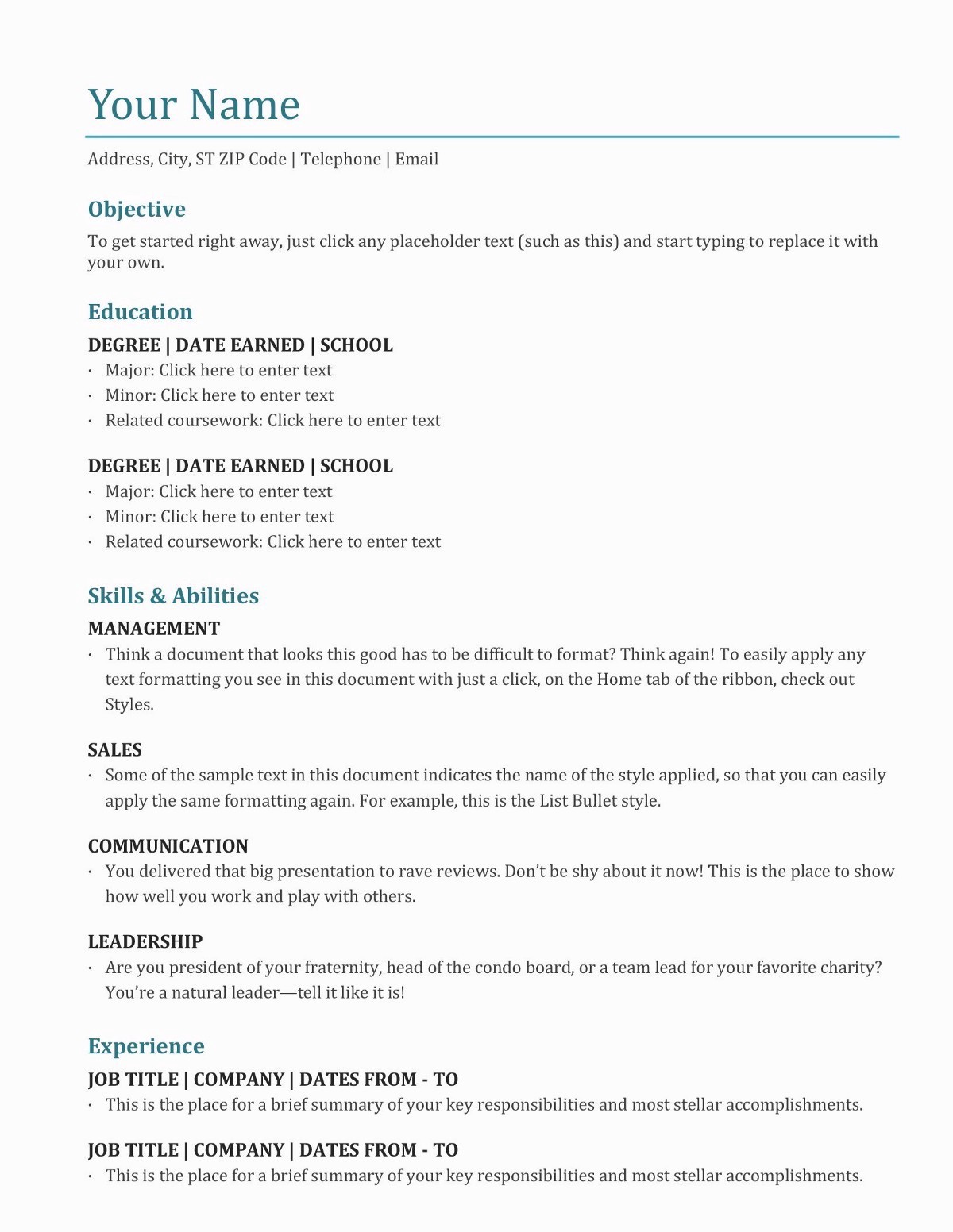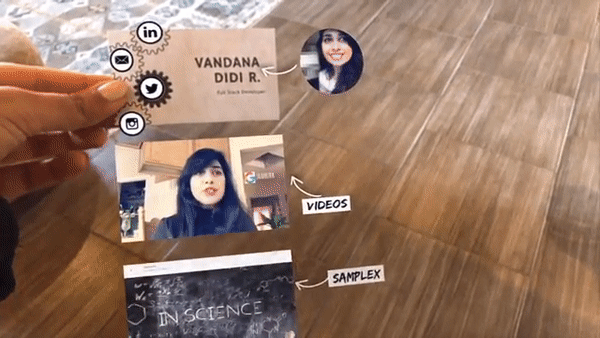UX Summary: Reboot
Almost every one of you has a resume, right? Since this is an important part of your main set of tools used when searching for work, it is exactly the same as the portfolio ( if you still have problems with this, then here you are ). However, are you sure that it goes through elementary automatic checks when applying for the vacancy of your dreams?

Here is an example of an article on Medium in which the applicant tells how she sent two resumes for two different vacancies to the same company. She carefully prepared her submissions for accurate job descriptions and nevertheless received an instant refusal, justified by the fact that she did not have the necessary experience.

In her article, “5 Secrets to Creating an Excellent UX Designer Resume and Getting a Job,” Amy Smith provides the following statistics - 85% of failures occur at the stage of automatic resume screening. Trying to determine the very magic combination that will allow you to overcome the powerful armor of automatic algorithms and HR managers can be incredibly exhausting, and often the verification process itself is not ideal. The only thing that can help in this situation is the opportunity to take a few simple steps to give your resume a chance in this difficult fight.
There is nothing more terrible for an HR manager than typos and bad spelling.
You can spend a lot of time staring at the screen and not pay attention to misspelled words, which, as luck would have it, are easily lost among other text. In no case should you neglect this and should concentrate on editing the main text of the resume. It is better to postpone the text of your resume for a day or two, and then again return to its total proofreading. Use automatic spell checking, compare all the headings with each other to make sure they are compatible, repeatedly check all verbs, if necessary - try using the following tools: Grammarly or Hemmingway App . And then pass it on to your friend or two, and best of all to those whom you know as people who will be extremely frank and strictly fair with you. And then, as they say, "if necessary, repeat the procedure."
When it comes to content, you should not simply and straightforwardly list the companies in which you worked, dates and a marked list of expectations. It is better to identify key key points in order to expose this as an achievement. You may have heard this tip before - use quantitative results. But do not forget that high-quality results also give results, and they are also important for working in the UI / UX sphere , where user-defined results are the true result.
Each resume writer and hiring manager will give you different answers to your question about the ideal resume format. The story of a guy who sent donuts to the employer of his dreams is very revealing in this matter.
For a typical resume submission process in response to the list of vacancies provided, it is best to approach as simply as possible and without further ado. For us, as designers, this may be unusual, since we are creative people, but do not worry. You can leave your creative ideas for later. Think of this version as a layout, wireframe, or content plan.

From Microsoft's Online Career Profile Submission Process
The main goal is as follows: obtaining a simple text file Word, which can be easily analyzed by automated systems and partners. By the way, many companies allow you to import from a file, LinkedIn or another source, but then they also require you to fill out their form. Others allow you to copy and paste all available content. Thus, a document in a simple text format will simplify this process.
In addition, the resume should be neat so that HR can print it and pass it to the hiring manager. Microsoft Office provides simple, free resume options that are great for this purpose and make it easy to customize block titles and their order.

Microsoft Office Template
It is for these events that you can use your UX ingenuity and create a high-quality version of your resume. Apply your know-how in user analysis and content hierarchy. Remember, you are a product, and hiring managers are users.
Use Illustrator or your other favorite tool to create a catchy look for a unique masterpiece. Print it out and take it with you for an interview.
As with the portfolio, there are many sources of templates for this type of resume, if you google the “resume template”. The “Complete UX Resume Guide + 3 Free Templates” offers a step-by-step recipe for what to include in your resume and how to put it all together. Unfortunately, 3 free templates seem to be "missing."
An unconventional approach can work in cases where it is consistent with your career goals and is not worthless, unlike, say, the donut case described above. Vandana Didi R. shared her business card in the form of augmented reality on LinkedIn , and since it is in her interest, this is a great way to attract attention.

Vandana Didi R. on LinkedIn
We have already mentioned the personal brand above. When you are looking for work, you are essentially selling yourself (in the good sense of the word). What really makes you stand out is not fancy fonts and smart icons. Imagine yourself in a consistent, professional light that represents you as a person and potential employee. Thus, during the interview, the team will feel that they already know you and want to know more about you. They feel your process because you have included your portfolio and LinkedIn information in the resume, and provided them with enough information to go to the interview.
Maintaining uniformity between your resume and LinkedIn profile provides the added benefit of applying your profile to many job sites. Stand out and save time.

From Microsoft's Online Career Profile Submission Process
Just as we advised in the previous article about portfolio, it is worth keeping your resume always up to date. At any moment in time it can come in handy, especially when this moment comes suddenly. If you make sure that your resume is relevant, it will save your time and energy, because you will not rack your brains, remembering the old milestones of your career.
If you used our portfolio advice and took some time to think about your achievements and improve your portfolio, then update your resume. Thus, when you meet with the hiring manager at a network event, you will be ready and confident in yourself, and perhaps you will find some new way that you want to explore more.
Having spent time creating an individual and unique resume, you will not only go beyond your comfort zone, but, we hope, get a job. The resume update process is a great time to think and focus on what you want from your next career step. We hope you find this article helpful!
Share in the comments your interesting resumes that you have seen!

Here is an example of an article on Medium in which the applicant tells how she sent two resumes for two different vacancies to the same company. She carefully prepared her submissions for accurate job descriptions and nevertheless received an instant refusal, justified by the fact that she did not have the necessary experience.

In her article, “5 Secrets to Creating an Excellent UX Designer Resume and Getting a Job,” Amy Smith provides the following statistics - 85% of failures occur at the stage of automatic resume screening. Trying to determine the very magic combination that will allow you to overcome the powerful armor of automatic algorithms and HR managers can be incredibly exhausting, and often the verification process itself is not ideal. The only thing that can help in this situation is the opportunity to take a few simple steps to give your resume a chance in this difficult fight.
The basics
There is nothing more terrible for an HR manager than typos and bad spelling.
You can spend a lot of time staring at the screen and not pay attention to misspelled words, which, as luck would have it, are easily lost among other text. In no case should you neglect this and should concentrate on editing the main text of the resume. It is better to postpone the text of your resume for a day or two, and then again return to its total proofreading. Use automatic spell checking, compare all the headings with each other to make sure they are compatible, repeatedly check all verbs, if necessary - try using the following tools: Grammarly or Hemmingway App . And then pass it on to your friend or two, and best of all to those whom you know as people who will be extremely frank and strictly fair with you. And then, as they say, "if necessary, repeat the procedure."
When it comes to content, you should not simply and straightforwardly list the companies in which you worked, dates and a marked list of expectations. It is better to identify key key points in order to expose this as an achievement. You may have heard this tip before - use quantitative results. But do not forget that high-quality results also give results, and they are also important for working in the UI / UX sphere , where user-defined results are the true result.
Format
Each resume writer and hiring manager will give you different answers to your question about the ideal resume format. The story of a guy who sent donuts to the employer of his dreams is very revealing in this matter.
It is great to plan the creation of several versions of one resume for different purposes and add the ability to personalize it depending on the place where this resume is sent.
Jobs and resume submission
For a typical resume submission process in response to the list of vacancies provided, it is best to approach as simply as possible and without further ado. For us, as designers, this may be unusual, since we are creative people, but do not worry. You can leave your creative ideas for later. Think of this version as a layout, wireframe, or content plan.
- Use one font, two if necessary. Avoid obsolete fonts (such as Times New Roman) and hard-to-read or unofficial fonts. Try to keep a pin size between 10.5 and 11.5 for readability.
- Color: black and white or, again, if necessary, you can add one additional color.
- Follow the rules of one page, as a last resort of two. And if you have two pages, add a heading in case the resume is suddenly sent out in print and then divided into parts.
- Use empty space wisely.
- Include standard headings, such as Experience and Education, and other key sections of the resume.
- Flexibly use the skills section, individually fill it out for each specific vacancy for which you are applying. Look at the part of the job posting that lists the tools you’re looking for (for example, Axure, Sketch, Invision) and add these tools if you use them in your work.
- Omit various graphics and images in this version. Automated parsers may not read them and will not take much care of whether there is graphic material in the resume or not.

From Microsoft's Online Career Profile Submission Process
The main goal is as follows: obtaining a simple text file Word, which can be easily analyzed by automated systems and partners. By the way, many companies allow you to import from a file, LinkedIn or another source, but then they also require you to fill out their form. Others allow you to copy and paste all available content. Thus, a document in a simple text format will simplify this process.
In addition, the resume should be neat so that HR can print it and pass it to the hiring manager. Microsoft Office provides simple, free resume options that are great for this purpose and make it easy to customize block titles and their order.

Microsoft Office Template
Job Interviews, Job Fairs and Networking
It is for these events that you can use your UX ingenuity and create a high-quality version of your resume. Apply your know-how in user analysis and content hierarchy. Remember, you are a product, and hiring managers are users.
Use Illustrator or your other favorite tool to create a catchy look for a unique masterpiece. Print it out and take it with you for an interview.
- Hold on to the brand. Make sure that the tone, color scheme, graphics match your personal brand (portfolio, business cards, LinkedIn profile, etc.)
- Adjust your resume to the type of work you want to be accepted for. There is less space in the infographic style, so keywords are less important here. Give a brief summary of each project, not a “sheet of text” about each employer and project in your career.
- Be creative in how you present your data. This is the place where you can unleash your mind and use graphics to visualize your skills.
- Be sure to include all the standard sections, such as contact information, education, experience and skills.
As with the portfolio, there are many sources of templates for this type of resume, if you google the “resume template”. The “Complete UX Resume Guide + 3 Free Templates” offers a step-by-step recipe for what to include in your resume and how to put it all together. Unfortunately, 3 free templates seem to be "missing."
An unconventional approach can work in cases where it is consistent with your career goals and is not worthless, unlike, say, the donut case described above. Vandana Didi R. shared her business card in the form of augmented reality on LinkedIn , and since it is in her interest, this is a great way to attract attention.

Vandana Didi R. on LinkedIn
Your personal brand
We have already mentioned the personal brand above. When you are looking for work, you are essentially selling yourself (in the good sense of the word). What really makes you stand out is not fancy fonts and smart icons. Imagine yourself in a consistent, professional light that represents you as a person and potential employee. Thus, during the interview, the team will feel that they already know you and want to know more about you. They feel your process because you have included your portfolio and LinkedIn information in the resume, and provided them with enough information to go to the interview.
- Use a language that represents your personality while maintaining professionalism
- Keep everything related to the marketing part consistent: resume, portfolio, business cards, LinkedIn profile.
- Practice SEO principles by linking all your brand elements to each other.
Maintaining uniformity between your resume and LinkedIn profile provides the added benefit of applying your profile to many job sites. Stand out and save time.

From Microsoft's Online Career Profile Submission Process
Update your resume regularly
Just as we advised in the previous article about portfolio, it is worth keeping your resume always up to date. At any moment in time it can come in handy, especially when this moment comes suddenly. If you make sure that your resume is relevant, it will save your time and energy, because you will not rack your brains, remembering the old milestones of your career.
If you used our portfolio advice and took some time to think about your achievements and improve your portfolio, then update your resume. Thus, when you meet with the hiring manager at a network event, you will be ready and confident in yourself, and perhaps you will find some new way that you want to explore more.
Conclusion
Having spent time creating an individual and unique resume, you will not only go beyond your comfort zone, but, we hope, get a job. The resume update process is a great time to think and focus on what you want from your next career step. We hope you find this article helpful!
Share in the comments your interesting resumes that you have seen!
All Articles